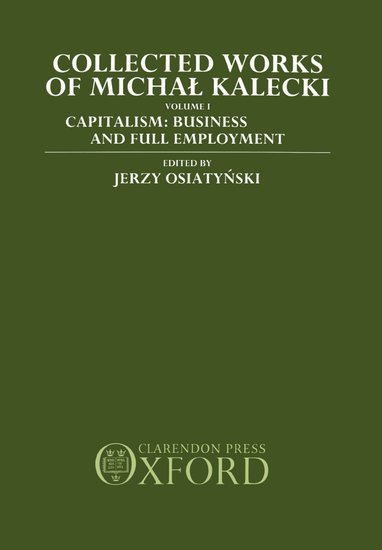The Nobel Prize in economics this year was given in one half to David Card for his work for showing using “natural experiments” that “that increasing the minimum wage does not necessarily lead to fewer jobs”.
The profession has taken so much time to accept this. Also, many have pointed out that it’s not accurate and the prize press release itself indicates that it is for the experimental methodology and not much for the result.
At any rate, it is ridiculous that such a thing was known in the 1930s: Michał Kalecki wrote on it. The idea that increasing wages raises unemployment is an old dogma and so proving it wrong as some “credibility revolution” (as many economists claim) is a bit ridiculous.
Anyways, the point of my post is to highlight how Michał Kalecki had not only argued that increasing wages does not necessary have a negative effect, he went on to argue that it has a positive effect. He was arguing for wages in general, not just about a law on minimum wage, but the ideas are obviously similar: wages in general or the minimum wage.
The following are two quotes from 1939 and 1971 respectively. Correct me if I am wrong if someone had said this before him.
In Essays In The Theory Of Economic Fluctuations, 1939 in Collected Works Of Michał Kalecki, Vol. I:
Final remarks
1. There are certain ‘workers’ friends’ who try to persuade the working class to abandon the fight for wages in its own interest, of course. The usual argument used for this purpose is that the increase of wages causes unemployment, and is thus detrimental to the working class as a whole.
The Keynesian theory undermines the foundation of this argument. Our investigation above has shown that a wage increase may change employment in either direction, but that this change is unlikely to be important. A wage increase, however, affects to a certain extent the distribution of income: it tends to reduce the degree of monopoly and thus to raise real wages. On the other hand, ‘real’ capitalist incomes tend to fall off because of the relative shift of income from rentiers to corporations, which lowers capitalist propensity to consume.
In Class Struggle And The Distribution Of National Income, in Collected Works Of Michal Kalecki, Volume II. Capitalism: Economic Dynamics:
… a wage rise showing an increase in the power of the trade unions leads-contrary to the precepts of classical economics-to an increase in employment. Conversely, a fall in wages showing a weakening in their bargaining power leads to a decline in employment. The weakness of trade unions in a depression manifested in permitting wage cuts contributes to the deepening of unemployment rather than to relieving it.
If you find any quotes before these dates, please let me now. Could be from Michał Kalecki himself!

